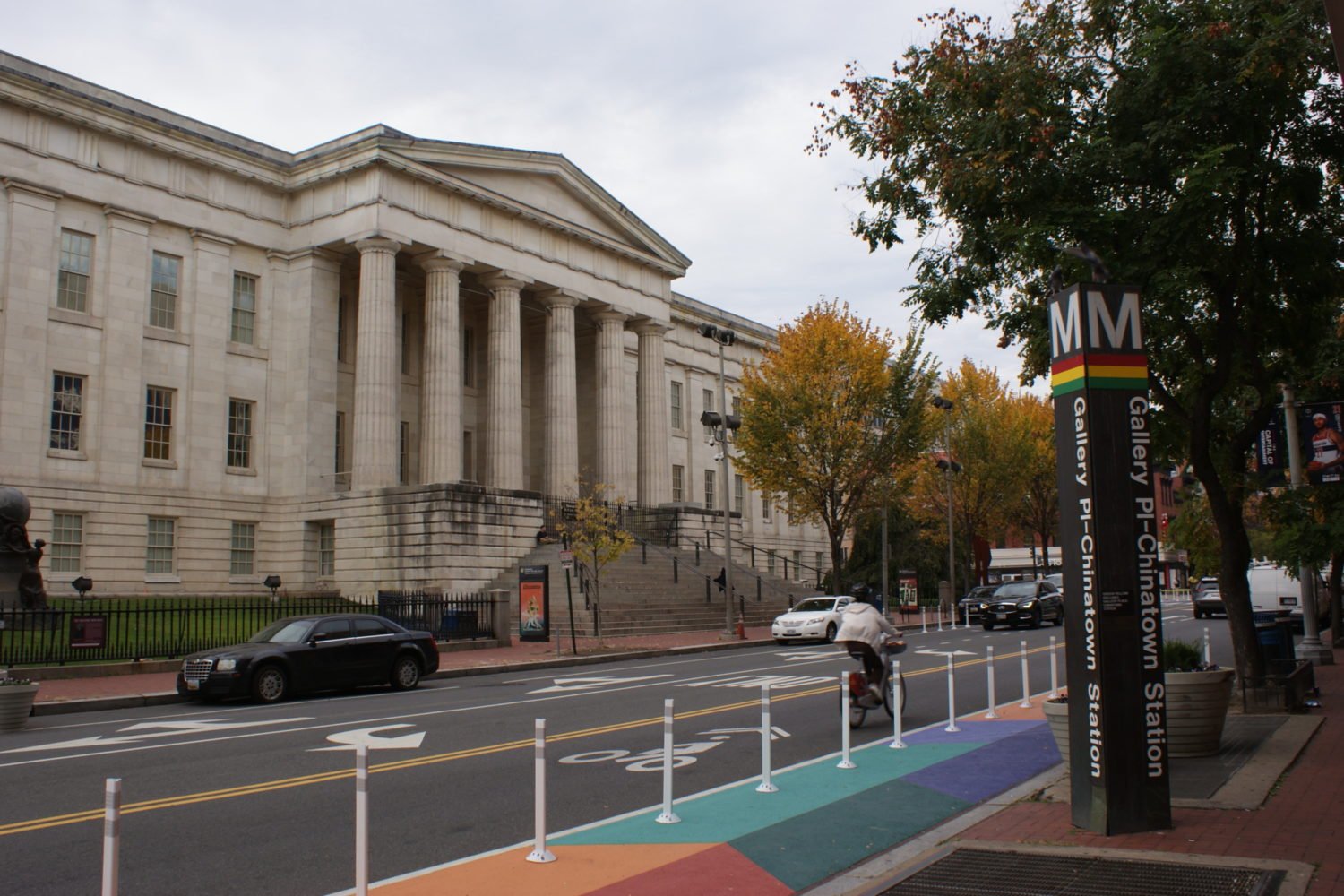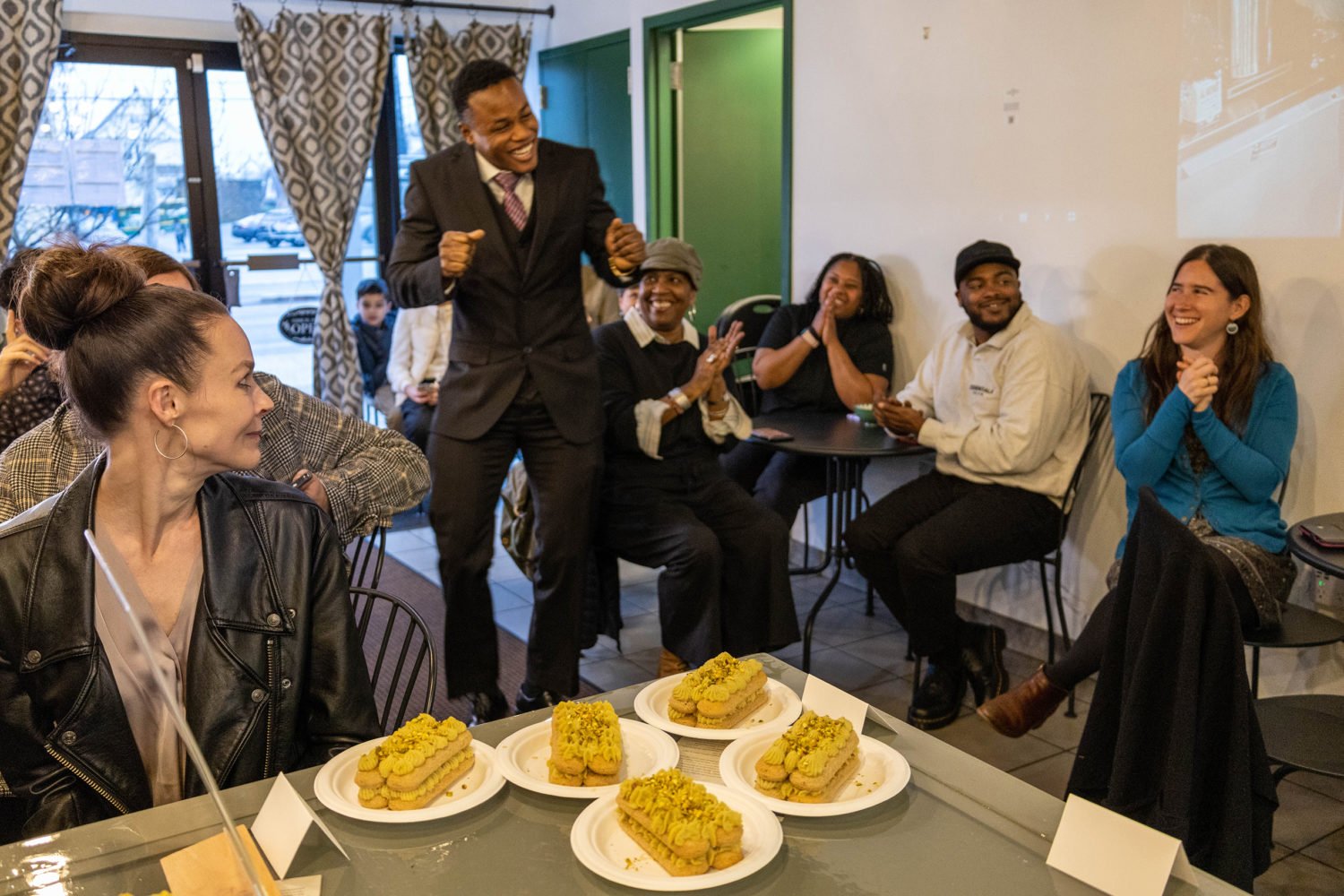About Coronavirus 2020
Washingtonian is keeping you up to date on the coronavirus around DC.
Gustavo Torres is the executive director of CASA, a member-based organization that supports Latino and immigrant communities in Maryland and Virginia.
How has your organization been impacted by the pandemic?
Covid-19 has made it difficult in many ways for CASA to carry out our core mission of supporting immigrant and working families. Uninsured, facing unemployment, and unsure of how to protect themselves and their families—that’s the situation many CASA members and their families were facing even before this crisis. The unfortunate reality is that our members have lived a lifetime confronting uncertain dangers and fearful odds. The challenges they face every day do not go away, but instead they are amplified by the difficulty of this unprecedented global pandemic.
Worse yet, instead of taking up the yoke of responsibility, the Trump administration has flouted its role to protect its people: immigrant workers won’t get a penny of stimulus money, any access to healthcare, or any unemployment assistance. Mixed status families are ineligible for stimulus relief. They’ll face the coronavirus pandemic without protection.
CASA services have always been tools for our members in their fight for justice and economic security for their families. However, now CASA services are an essential lifeline, often our members’ only source of income, information, or assistance. We’ve had to adapt and adapt quickly to the new reality—we know that for CASA members, this is a crisis within a crisis.
How have you had to change your operations in order to serve the community during the crisis?
Shutting down CASA offices means finding creative solutions for the services that we provide in our 11 locations—we touch the lives of people from Baltimore to Woodbridge, and we are dedicated to continuing our work.
Our services have been tailored to this new reality of social distancing. To slow the spread of the coronavirus, all CASA staff are teleworking. We’ve stopped our clinics and classes, including the weekly Know Your Rights trainings on citizenship, immigration, naturalization, housing, and healthcare, among many other topics. We paused in-person membership processing and instead went to appointment-only, relying on web and phone platforms to get it done.
We’ve maintained our focus on critical campaigns like the Census. Our three-state canvass which has already reached thousands quickly moved entirely to remote outreach, and we are continuing our outreach strategically, reaching millions through grassroots organizing, social-media campaigns, and Facebook Lives.
We know that for many of CASA’s members, communications from official sources are often either not trusted, not presented in their preferred language, or not relevant to their unique situation as immigrants. The stay-at-home orders, for example, were not initially delivered in Spanish, so many CASA members encountered misinformation—if they had any information at all.
Because of this, we’ve expanded our member and community outreach. We have been quickly communicating essential information about staying safe during this pandemic and the availability of services to our members.
We’ve been flexible, shifting our focus and resources to increase CASA’s internal capacity in certain areas. We’re increasing staffing on CASA’s multilingual health information hotline and expanded our ability to provide services and information remotely. To get the message out widely, we’re hosting Facebook Live series on key areas: CASA experts are taking up cameras to answer questions about how Covid has affected evictions and tenant rights, healthcare access, ICE raids and naturalization—even ESL classes on how to ask employers for gloves, masks, and other protective equipment. In addition, we have carried out limited food distributions to CASA members that need it the most.
Have you seen the fundraising environment change as a result of the pandemic? If so, how?
It has been incredible to watch our community come together so quickly and so powerfully. It’s a strange thing for CASA to give direct cash benefits to our members—that’s not the type of relationship we have with our membership. CASA is about standing in solidarity and building and working together, not giving away things for free.
However, in this unprecedented crisis, the CASA member leadership council told us in no uncertain terms that we needed to respond differently. What we’ve been telling our supporters is that this is not about charity—our government has abandoned our immigrant brothers and sisters in our hour of need. Instead, this is about solidarity, and our supporters in the community really understand that. Within less than a week, we’ve already raised over $60,000 from individuals with an average donation under $150, and our institutional funding partners like our friends in unions and foundations have also stepped up big time to make emergency funds available, so far already contributing over $100,000 with more to come. For a lucky few, the check they receive from the CARES Act will be a windfall rather than a lifeline. We’re asking those people lucky enough to be in that situation to consider taking a portion of that stimulus check and provide it to your neighbors who didn’t receive any kind of bailout and desperately need the support.
Yes, this economic crisis is going to affect the ability of our individual, business, union, and foundation allies to support us financially in the future, but in the short term, what we’re seeing is an incredible coming together of this community around their Latino, immigrant, and working-class friends and neighbors.
With that said, it will not be enough. Even if we reach our $1 million goal, the Solidarity Fund will still only provide moderate support to between 2,000 and 4,000 families—not enough to pay the rent or to feed families for an extended period of time.
The truth is, as inspiring as it has been to see everyone come together, we still need more help. But even if everyone pitched in, it would not be enough. We know that it is only our federal government that has the financial muscle to respond to this crisis at the scale and scope necessary to make an impact. We need our allies to continue to support the fund, but we are also fighting with every breath to ensure our governments take action to support the immigrant community.
How concerned are you about your organization’s ability to continue fulfilling its mission amid the pandemic?
With the strength of the CASA members, staff, and friends, we are more resilient than ever. As evidenced by over three-quarters of our staff already giving to the Solidarity Fund with more coming in every day, our team is committed to the work and to serving this community too. Our mission and values demand that we find a way forward and continue fighting for justice for our community together. Our supporters and our members know that this crisis makes CASA’s work more important than ever, and with the courage of our members, the passion and commitment of our staff, and the support of our allies, we are finding new ways every day of rising to the challenge.
Finally, it’s important that people realize what we’re dealing with is a crisis within a crisis. Yes, the pandemic is an unprecedented global health and economic disaster, but it has not suddenly erased the struggles for justice of yesterday: It has highlighted and exacerbated them. Our response now is not to try to get back to the way things were before. It is to find a way to keep fighting for better, more just, inclusive systems even in the face of new challenges that threaten all of us.
What can people in the area do if they’d like to help?
Our members, our community, have been abandoned by this government in our hour of greatest need, and now the Solidarity Fund is the only thing that stands between our families and complete desperation.
How do gifts to the Solidarity Fund help? The Solidarity Fund provides direct cash benefits to our members to help pay for their immediate needs: food, rent, utilities, transportation. We give this to our community in the most non-paternalistic way, not directing any recommendations on how these funds should be spent.
Now is the time for action. Whether you are in a position to give today, or you’d like to pledge a portion of your incoming federal bailout check—we ask everyone reading this to support the Solidarity Fund with whatever amount they’re able to contribute here. The direct cash benefits will allow our members to continue fighting for justice in our communities. Our liberation is tied together.
What’s the most heartening or encouraging thing that you’ve witnessed or read about since the onset of the pandemic?
I have been moved by just how generous our community has been. Members, staff, supporters, and friends of CASA have stood in solidarity with our immigrant brothers and sisters. They’ve been the driving force behind the Solidarity Fund, opening their hearts and wallets when it’s needed the most. That warms my heart and energizes me more than people know.
What are you most looking forward to when this is all over?
I can’t wait to reopen CASA’s offices again when it’s safe to do so. Yes, we are gaining a new muscle with our new way of providing services, but I long for the day when the community once again reach us in our Maryland, Pennsylvania, and Virginia locations. Having the human connection in person is just as valuable as what we’re all doing now to stay safe.
When you get scared or stressed about the pandemic, what do you do to relieve the fear or anxiety?
The pandemic has proven to be a divide of those who have privilege and those who don’t, making CASA’s work more important than ever. I’ve been pulling long hours almost every day, pushing lawmakers, government agencies, and other officials to offer protection and relief as well as adapting CASA services to the new reality. Though I’ve been working from home, I’m more connected to my team now more than ever, as we listen to the ever changing needs of our members. And for that, I am grateful.



![Luke 008[2]-1 - Washingtonian](https://www.washingtonian.com/wp-content/uploads/2017/10/Luke-0082-1-e1509126354184.jpg)
















